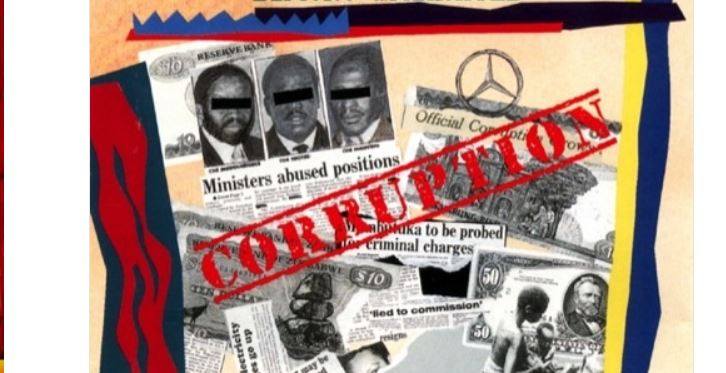It has been repeatedly alleged that Zimbabwe is suffering economically more because of corruption than the much talked about sanction.
The media has been called upon to play its watchdog role by exposing the rot.
The call comes after allegations that some journalists are being paid by corruption bigwigs to cover their dirty tracks and intimidate those who would be working on exposing corrupt practices.
Most recent, prominent journalist, Nehanda Radio, founder and Managing Editor Lance Guma, has lodged a complaint to the editor of one of the biggest daily newspapers in Zimbabwe, saying their reporter had been intimidating them for trying to expose corruption at the National Social Security Authority (NSSA).
“I have formally lodged a complaint with the Editor at Newsday, about their journalist Xolisani Ncube who for the past 4 weeks has been running errands for sacked former NSSA board chair Robin Vela to harass and intimidate us into removing stories covering alleged corruption at NSSA,” said Guma, via a twitter handle.
This however, is neither the first, nor the only case in which the media has been blamed for trying to sweep corruption cases under the carpet. History has it on record that some journalists in some instances have been given brown envelopes to try and hide the corrupt side of prominent personalities.
A report compiled by the Voluntary Media Council of Zimbabwe (VMCZ) in 2013 revealed that the quality of news reporting in Zimbabwe has steadily declined since 2000, and corruption was one of the main reason.
Meanwhile, in 2016, at the annual Bornwell Chakaodza Memorial Lecture in Harare, Dumisani Muleya, editor of the weekly Zimbabwe Independent newspaper, said corruption has destroyed journalism standards in Zimbabwe.
“If you are not corrupt…, people think that you are a danger to them because you will expose them,” he said.
Muleya attributed the high rise in corruption to the current economic environment, where the majority of the people, journalists included, were living in poverty, but urged journalists as the eyes and ears of the society not to embrace the vice.
Apparently, following the allegations by Guma, against the Newsday reporter, veteran journalist Hopewell Chin’ono believes it is disheartening that the media is now being used to hide and sanitise corruption.
“This is how you fix a country, by exposing those that enable corruption….
“It is it is shameful for journalists to be used by the rich and powerful to create darkness in order to cover their criminality instead of providing light,” he says.
Political analyst Elder Mabhunu agrees, and urges media practitioners to always stand by ethical standards and live by example.
“When the media is corrupt, the nation tends to suffer from misinformation. No reporter would exercise checks and balances against abuses and corruption by those in the corridors of power, when he/ she is a beneficiary of the same corrupt deed,” says Mabhunu.
Meanwhile, the NSSA forensic audit report has opened up a can of worms, with a number of government departments being implicated in the rot. While it has already claimed the scalp of minister Priscah Mupfumira, it is believed, the report if taken seriously would lead to more big wigs ending up in prison.













